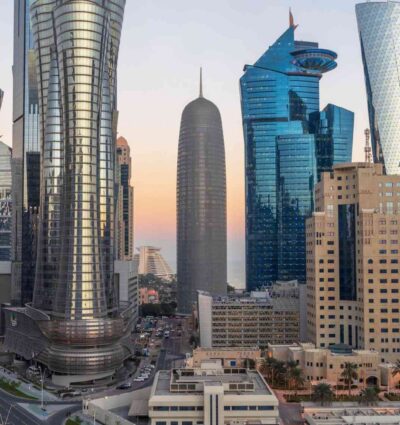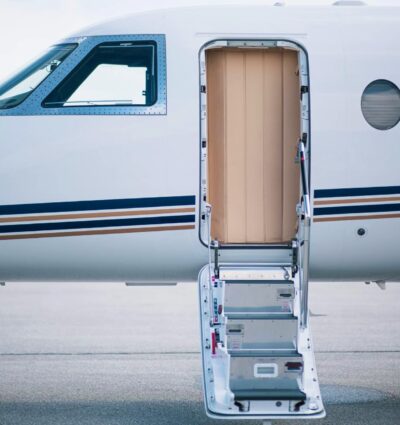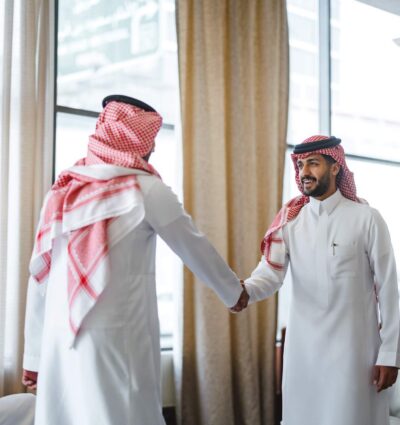
During December and January, the Middle East becomes a hub for business, luxury events, and private aviation. Cities such as Dubai, Abu Dhabi, Doha, Riyadh, Jeddah, and Kuwait City host corporate meetings, lifestyle festivals, and top-level sporting competitions, creating a demanding but highly attractive environment for those who manage executive travel.
For Travel Managers, Personal Assistants, and specialized agencies, understanding the dynamics of the region is essential to designing efficient itineraries, ensuring safety, and optimizing their clients’ time.
A Winter Full of Opportunities
Between late December and January, the United Arab Emirates, Qatar, and Saudi Arabia host events that attract business leaders, investors, and High-Net-Worth Individuals (UHNWI). The combination of corporate, sporting, and cultural activities transforms the region into a strategic hub for those seeking to maximize their clients’ productivity and experiences in a single trip.
Abu Dhabi: Formula 1 and High-Level Networking
The Abu Dhabi Grand Prix (December 5–7, 2025) is a major sporting event, but it is also a meeting point for international executives and personalities. For those who have to manage their mobility, it means coordinating transfers between airports, hotels, circuits, and hospitality venues with punctuality. Arrival times for meetings, networking sessions, and parallel activities must be precisely adjusted so that participants can make the most of their stay.
Dubai: The Shopping Festival as a Corporate Experience
The Dubai Shopping Festival (December 5, 2025 – January 11, 2026) is no longer just a retail event but has become a true lifestyle and business networking circuit. During the event, the season’s trends for high-profile clients are revealed, and for Travel Managers, this means coordinating flexible schedules and ensuring that every experience runs smoothly.
Ultra 2026: Private Meetings in the Luxury Sector
In January, also in Dubai, Ultra 2026 (January 25–29, 2026) will bring together luxury professionals, private travel designers, and experience providers for UHNWI clients. For Travel Managers and specialized agencies, it is essential to be able to plan attendees’ mobility in advance: itineraries must include precise transfers between airports, hotels, and events, always ensuring privacy. These types of meetings highlight the importance of knowing local logistics and protocols for accessing exclusive spaces.
Doha and Riyadh: Sport, Technology, and Sustainability as Corporate Pillars
Events such as the FIFA Arab Cup in Doha and the Digital Acceleration Expo or Climate Action Expo in Riyadh reflect how the Middle East is establishing itself as a hub for innovation, sports diplomacy, and sustainability. For Travel Managers, this scenario requires in-depth knowledge of local regulations and security protocols for this type of event.


Why the Middle East Requires Precise Planning for Executive Travel
The region combines a high density of events, a growing volume of private aviation, and urban ecosystems designed for efficient mobility, making it a destination that requires expert planning. This means:
- Anticipating transportation demand between strategic hubs.
- Ensuring secure and confidential access to high-end airports and hotels.
- Coordinating complex itineraries that integrate corporate meetings, select leisure activities, and private air transportation.
- Adapting schedules to last-minute changes without compromising the customer experience.
The main destinations in the Middle East leave no room for improvisation. Every trip, from arrival at an FBO to attending a private event, must be perfectly planned to ensure that customers’ time is not wasted on waiting or logistical setbacks.
Trends that Highlight the Relevance of the Middle East
Concentration of Events in High Season
December and January see more than a dozen international business, cultural, and sporting events. This generates simultaneous flows of VIP travelers who require coordinated and adaptable mobility.
Increase in Private Flights
The airports of Dubai, Abu Dhabi, Doha, and Riyadh report peaks in private aviation traffic during the peak season months. For Travel Managers, it is vitally important to work with private mobility providers with specific communication protocols with FBOs, as well as with chauffeurs who have extensive experience in business aviation pickups (for both passengers and crew).
Synergy Between Business and Leisure
Sports events, shopping festivals, and technological innovation meetings allow productivity and exclusive experiences to be combined in a single itinerary. The key is to maximize each trip so that the time invested translates into results and opportunities.
Growth of the UHNWI Market and Corporate Clients
The region is increasingly attracting high-net-worth clients and corporate delegations, increasing the complexity of itineraries and the need for security and privacy protocols.
Strategic Recommendations for Travel Managers and Agencies
For those who coordinate executive travel to the Middle East and require private chauffeured transportation, here are some key practices that can transform logistical challenges into competitive advantages:
- Advance planning of transfers and access: Plan detailed itineraries and ensure coordination between drivers and FBOs, hotels, or events, taking into account security windows and local permits.
- Operational flexibility: Have alternatives ready for schedule changes, traffic peaks, or last-minute adjustments.
- Coordination with trusted partners: Choose providers who understand VIP protocols, can manage access to restricted areas, and guarantee punctuality.
- Optimization of useful time: Consider each trip as a productive moment, integrating meetings or breaks, and maximizing every minute of the passenger’s schedule.

These measures allow clients to arrive at each event prepared, rested, and able to make the most of their professional interactions and exclusive experiences.
The Middle East as a Strategic Epicenter
The winter of 2025–26 will consolidate the Middle East as a key destination for business, luxury, and private aviation. Cities such as Dubai, Abu Dhabi, Doha, Riyadh, Jeddah, and Kuwait combine a high concentration of exclusive events and experiences that offer unique opportunities for networking, innovation, and corporate leisure, provided that mobility and planning are aligned from the outset.
To cope with the increase in travel during the high season, Drivania has reinforced its fleet of certified chauffeurs in the main destinations in the Middle East. This ensures availability even during the peak demand periods of December and January, guaranteeing that each itinerary is managed with precision. Passengers can travel between airports, hotels, and events without interruption, maintaining the standards of safety, discretion, and efficiency that characterize high-level executive travel.